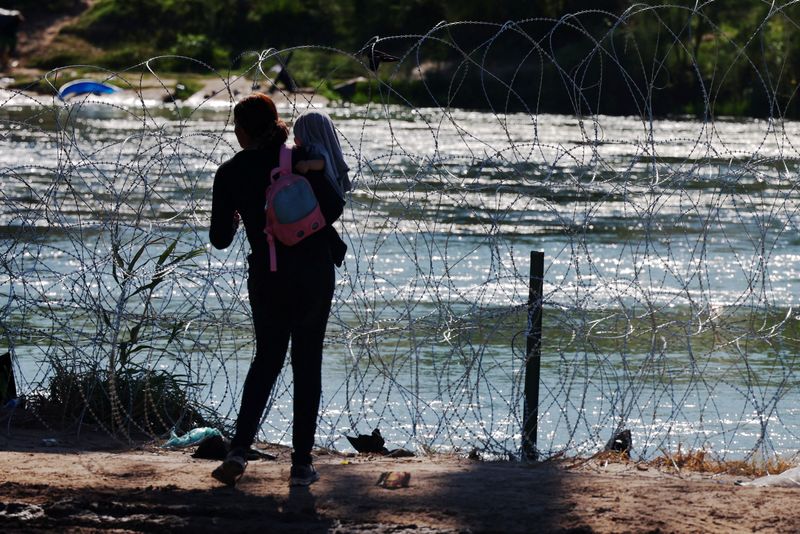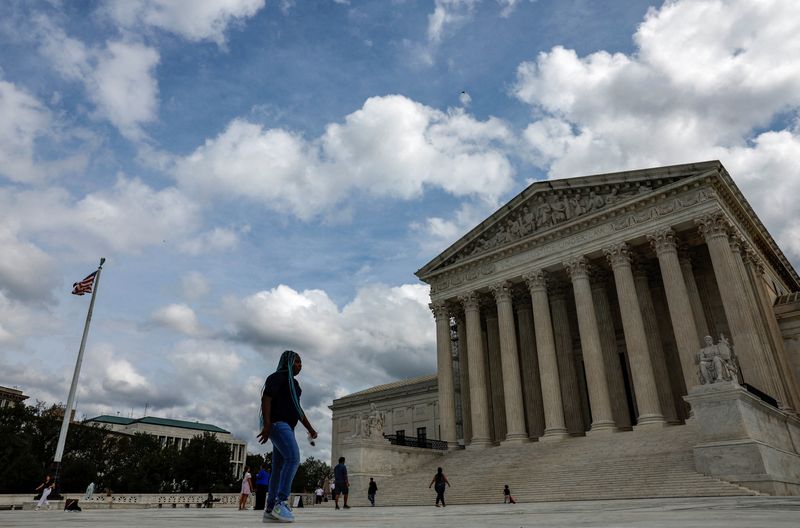By John Kruzel and Andrew Chung
WASHINGTON (Reuters) -President Joe Biden's administration on Tuesday asked the U.S. Supreme Court to intervene after a federal appeals court temporarily blocked it from destroying razor wire fencing Texas placed along its border with Mexico to deter illegal border crossings.
The administration asked the justices to halt a December ruling by the New Orleans-based 5th U.S. Circuit Court of Appeals that prohibited Border Patrol agents from cutting or moving the disputed fencing while litigation plays out.
The 5th Circuit on Dec. 19 found that a federal judge had been wrong to rule that the U.S. government was immune from a lawsuit brought by Texas that claimed a federal policy of removing the fencing was illegal.
The Biden administration told the justices that accepting the 5th Circuit's rationale "would leave the United States at the mercy of States that could seek to force the federal government to conform the implementation of federal immigration law to varying state-law regimes."
The Biden administration also said that there is no indication that the wire has deterred migrants from crossing into the United States.
The concertina wire fencing was installed on private property along the Rio Grande river by the Texas National Guard as part of Operation Lone Star, which was launched by Republican Texas Governor Greg Abbott in 2021 to deter illegal border crossings.
The state's lawsuit over the razor wire, filed in October, claims U.S. Customs and Border Protection agents recently stepped up an existing practice of cutting, destroying or otherwise damaging fencing that the state had strategically placed on private land with landowners' permission.

A federal judge in November criticized the Biden administration for its "utter failure" to prevent unlawful entry into the United States. But she said Texas' legal claims could not overcome the federal government's sovereign immunity in the case.
The 5th Circuit on Dec. 19 said the judge had misinterpreted a law granting the U.S. government immunity from some legal claims by states, and that Texas was likely to prevail in its lawsuit.
